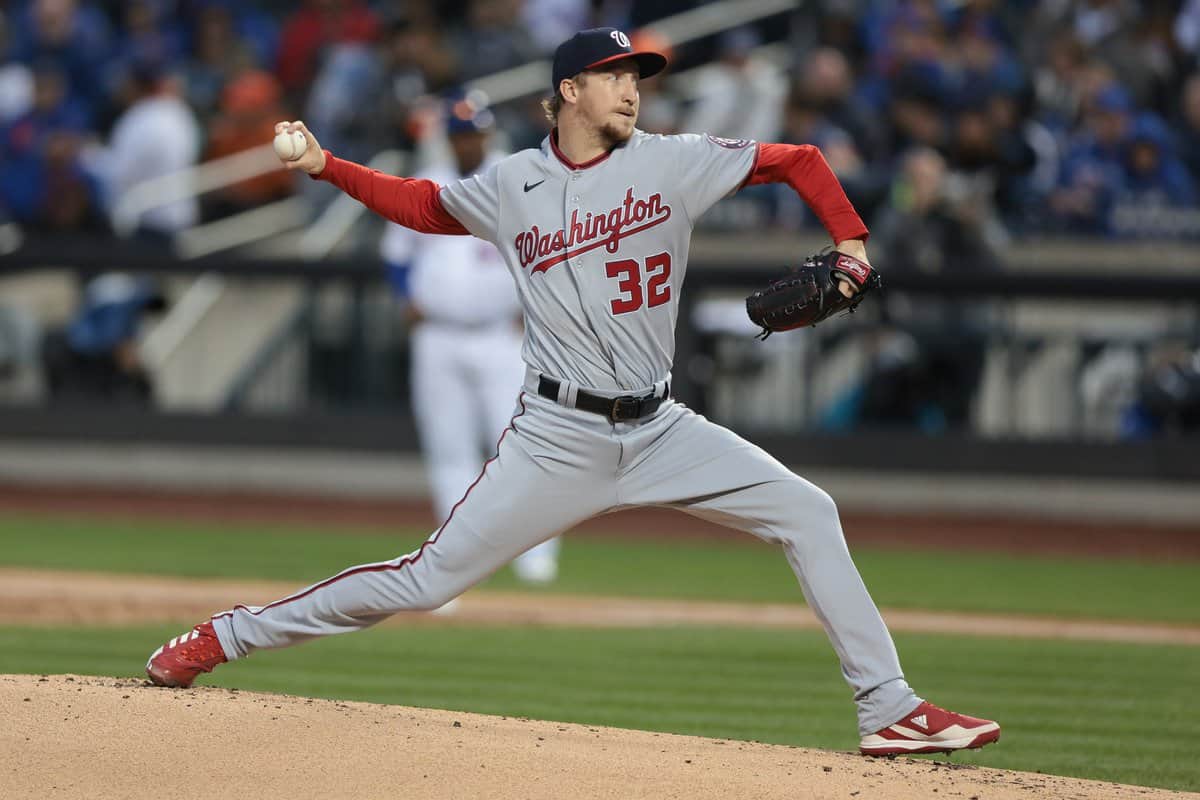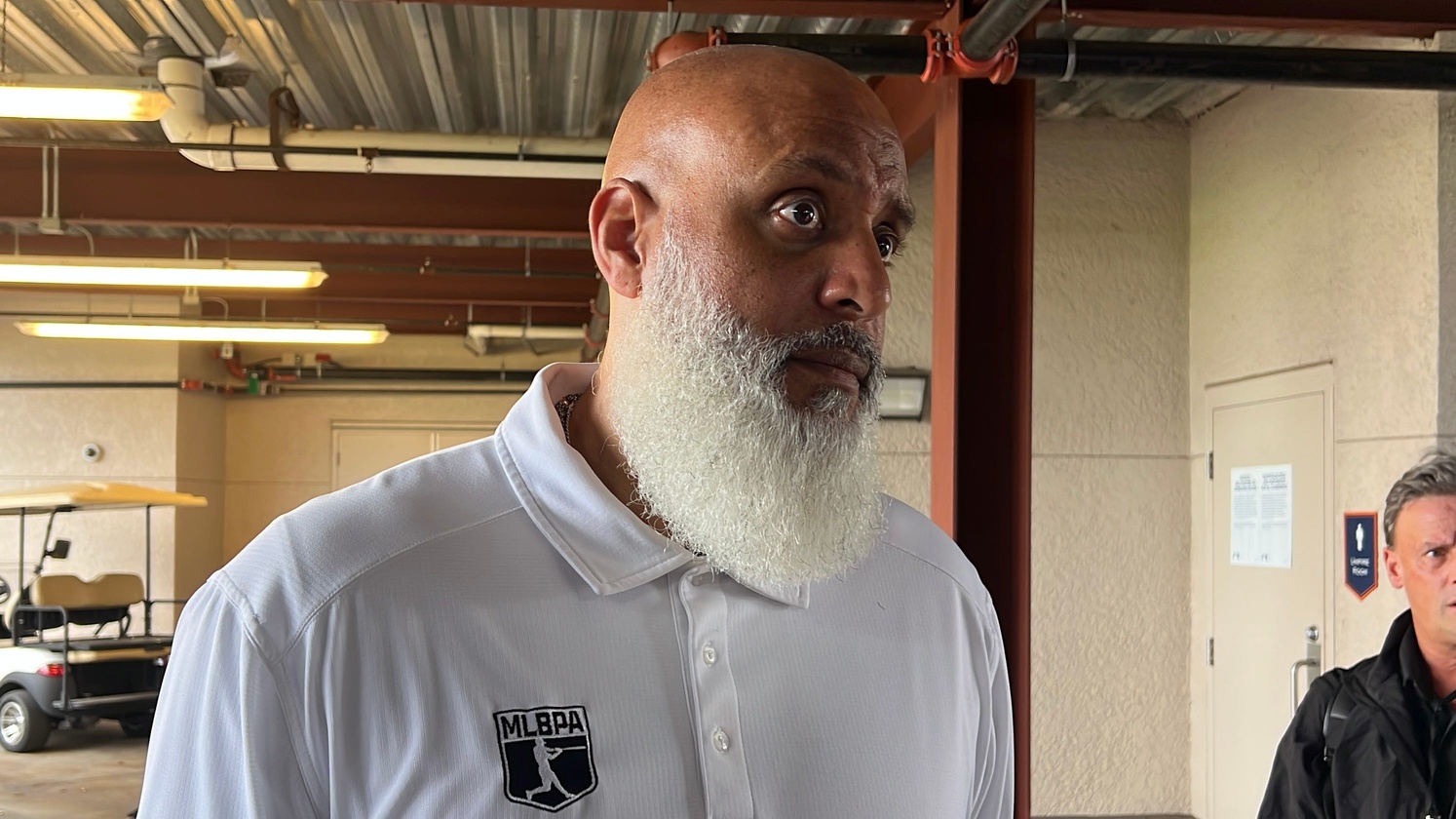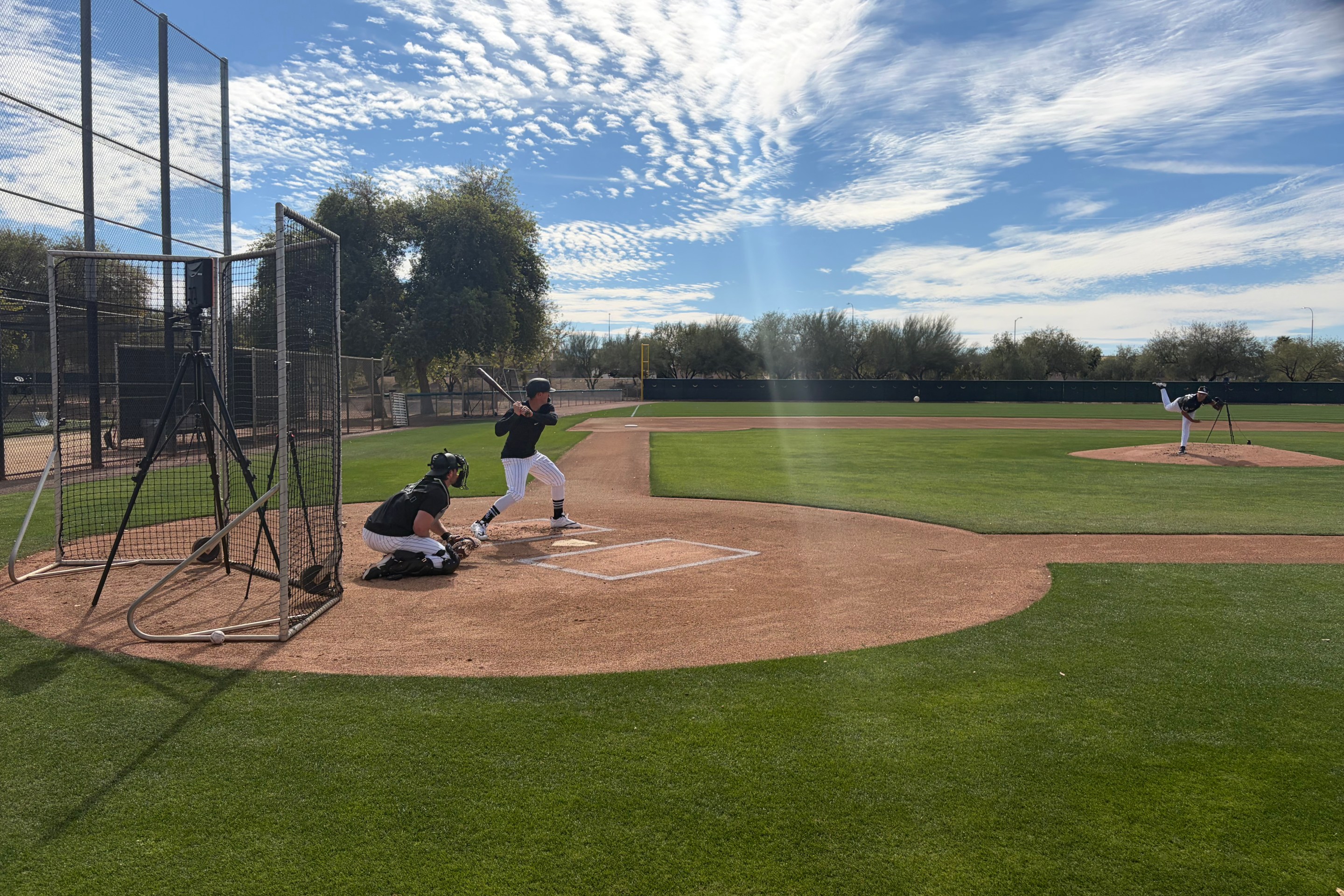The White Sox added a pitcher to their rotation at the winter meetings before they subtracted one, signing Erick Fedde for two years and $15 million, according to Jeff Passan.
Fedde, who hit a wall in the Nationals rotation after going 13-22 with a 5.64 ERA (71 ERA+) over 2021 and 2022, resuscitated his career with the NC Dinos of the Korean Baseball Organization, going 20-6 with a 2.00 ERA and winning the league's MVP award.
The White Sox talked about following the example set by the Diamondbacks on the field, but here's potentially a case of them doing so at the front office level. At this time in 2018, Arizona signed Merrill Kelly to a two-year, $5.5 million deal following a successful run with the SK Wyverns. He's been a mainstay of their rotation ever since, going 48-43 with a 3.80 ERA (112 ERA+) over 127 starts. Perhaps Josh Barfield relayed his satisfaction with the experience.
Kelly experienced a huge velocity jump in the KBO, and Fedde described a rather significant transformation to the Washington Post. He adhered to a program to strengthen his shoulder, and also adressed biomechanical issues with his pitch releases. It doesn't sound like he got a major fastball surge like Kelly, but he can boast a new sweeper and a better changeup that creates unpredictability with his pitch mix.
“The reality is that I wish I’d done it sooner,” Fedde said of going to a performance facility. “Right as I was getting out of college, it was maybe when the Driveline ideas were just starting to go mainstream, and a lot of people in the sport had negative thoughts around it. The opinion I heard most was that it was just these guys throwing weighted balls as hard as they could and there wasn’t any pitchability to it. And then I started using some heavy balls this offseason, and it really helped keep my mechanics clean. My shoulder has felt better than ever because of all the stuff I’m doing"
The biggest changes to Fedde’s pitch mix are that he now throws a sweeper — a slider with more horizontal than north-to-south movement — and has upped his change-up usage. Last season with the Nationals, he threw 39.9 percent sinkers, 28.8 percent curves, 27.6 percent cutters and only 3.6 percent change-ups. With the Dinos, he figures he is around 25 percent for each pitch, something that has been pushed by the team’s analytics staff. After struggling to finish off hitters in Washington, he has 149 strikeouts to 32 walks in the KBO, a league of patient batters who want to work long counts.
There's a sort-of precedent with this signing for the White Sox, and that's Mike Wright, who joined the Sox organization after spending the pandemic year in the KBO. But Wright wasn't as successful with the Dinos, and he signed a minor-league deal, so the investment in Fedde signals more confidence in the makeover, as does this reaction from new White Sox Senior Pitching Advisor Brian Bannister.
Also noteworthy: Fedde is represented by Scott Boras, so perhaps this is one case where Chris Getz can build new bridges. That also explains why Fedde's arrival was foreshadowed by a weird kind of sweepstakes report:
But based on the growth of the contract between then and now, hey, whatever works.
The White Sox badly need starting pitching, and while Fedde's unimpressive MLB career can't be overlooked, there probably isn't a better use of $15 million for a team in the Sox's position. They not only need upside, but they need innings, and most of the pitchers who sign for deals in that neighborhood have uglier injury histories. Fedde, who turns 31 in February, has made 29, 27 and 30 starts over the last three years.
The White Sox haven't announced the move yet. It's pending a physical, and the Sox will have to make a corresponding move since Wednesday's Rule 5 draft would require the team's open 40-man roster spot (corrected). They'll then need to add at least one more starter this winter, and two if they trade Dylan Cease.






